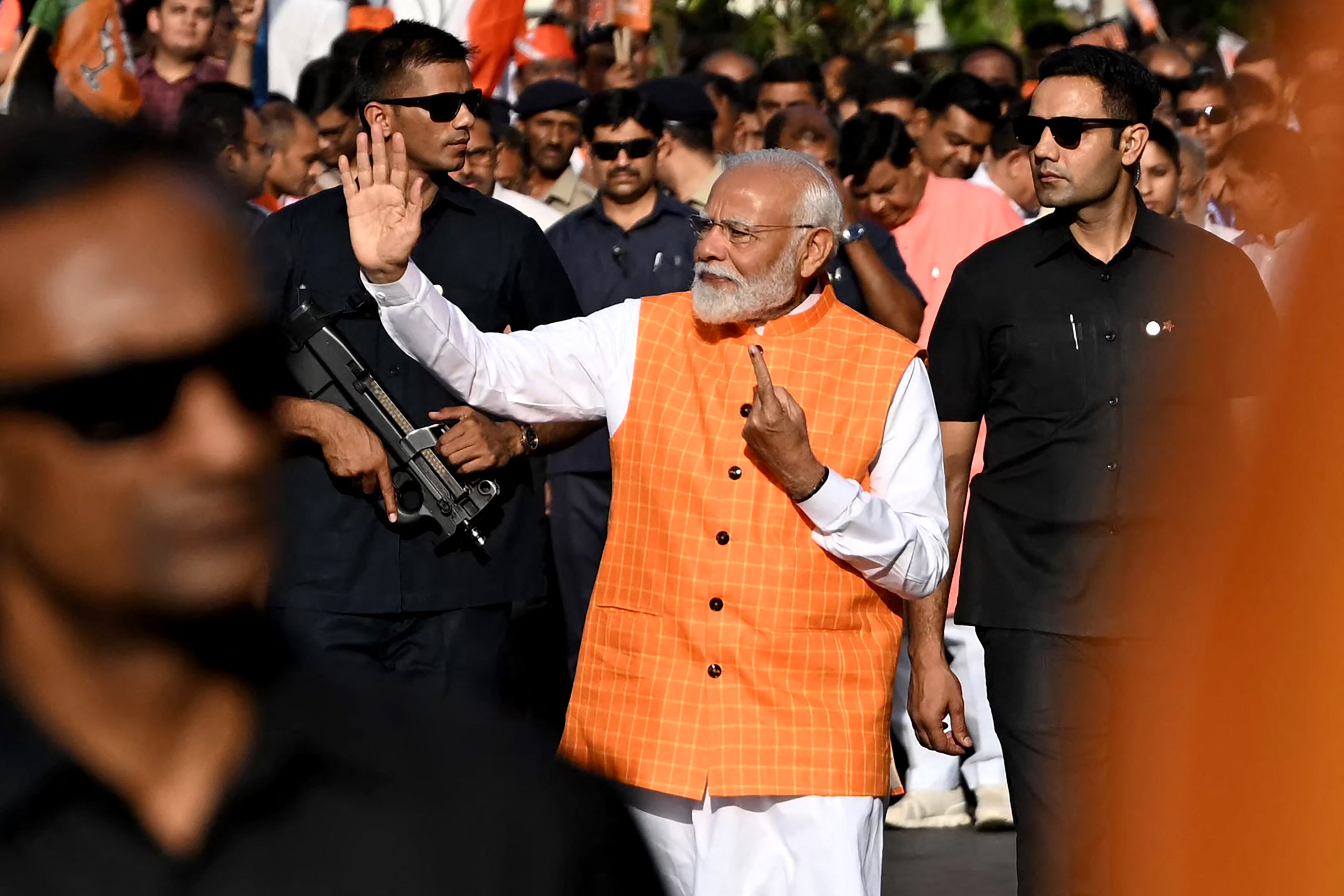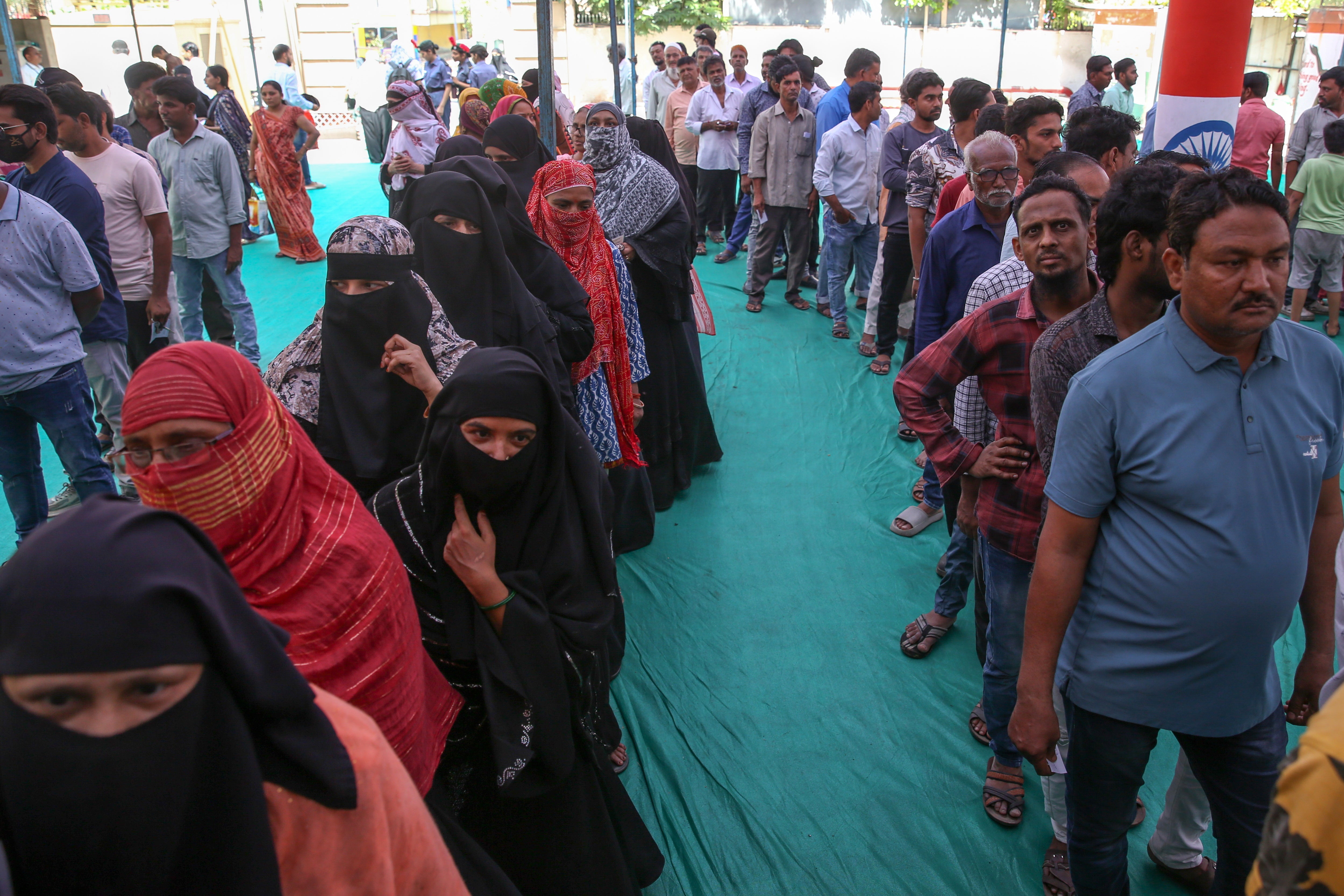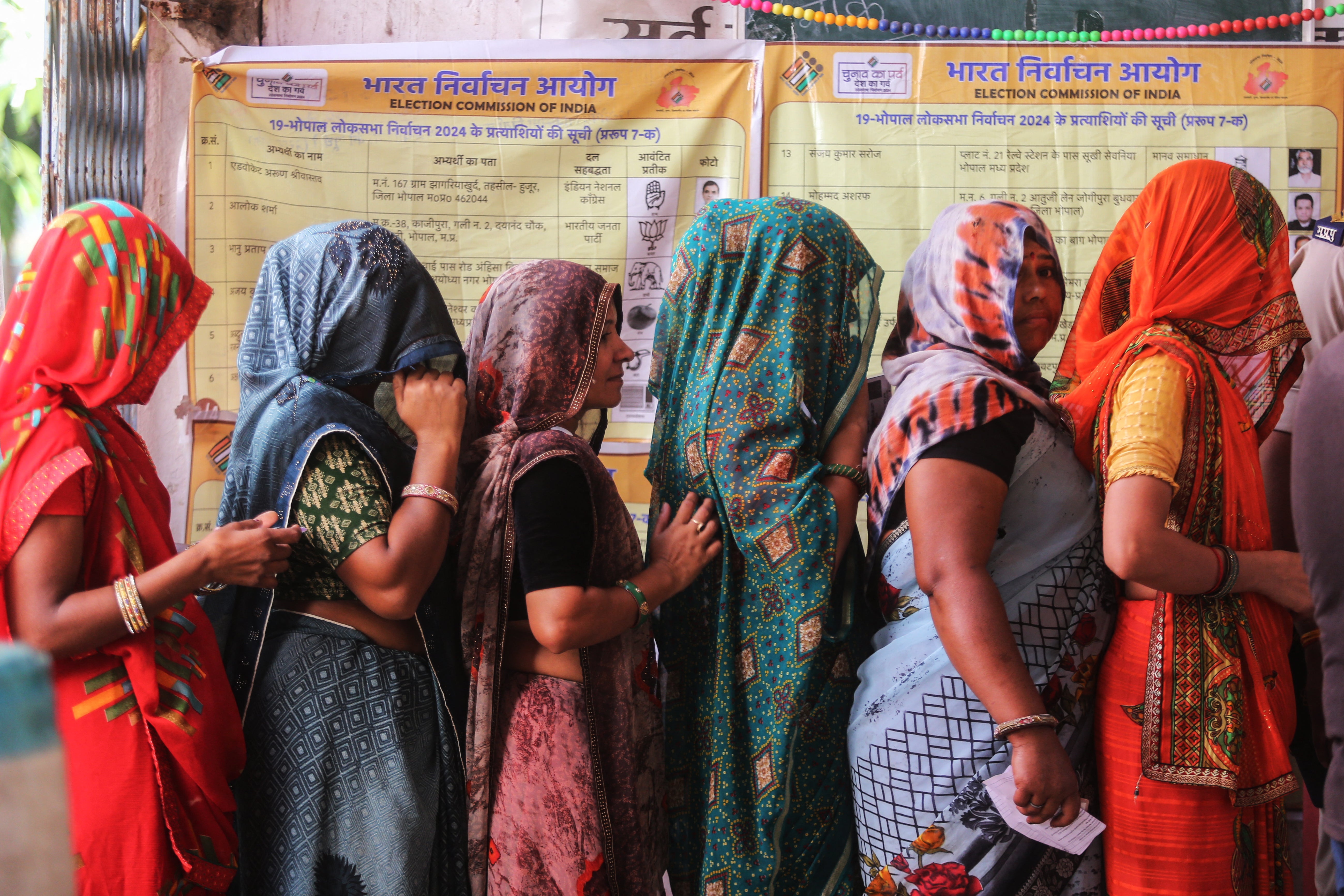Modi leads voting as India conducts third phase of national election
Hundreds of thousands queue up at polling stations even as parts of country see temperatures soar above 42C
Indian prime minister Narendra Modi led the voting in the third phase of the country’s election which has been marred by inflammatory campaign speeches attacking the Muslim minority and growing acrimony among rival parties.
As many as 93 constituencies went to the polls across 11 states, including Mr Modi’s home state Gujarat as well as Karnataka, Maharashtra, Telangana and Uttar Pradesh.
Mr Modi, who has been in power for a decade, is seeking a third straight term and faces a weakended coalition of the main opposition Congress party and its powerful regional allies.
The election, which sees seven phases of voting spread over six weeks, is meant to elect 543 members of the lower house of India’s parliament called the Lok Sabha. A party or coalition needs a simple majority of 272 seats to form the government. In the prevous election in 2019, Mr Modi’s Bharatiya Janata Party took 303 seats and the Congress just 52.
Nearly a billion people are eligible to vote in this election. And hundreds of thousands of them queued up at polling stations across the country on Tuesday despite temperatures soaring above 42C in some regions.
Mr Modi cast his vote in the morning at a polling station in Gujarat’s Gandhinagar constituency, where his chief lieutenant, home minister Amit Shah, is standing for re-election.
As the prime minister appeared outside the polling station clad in a saffron vest, the signature hue of his Hindu nationalist party, he was greeted by a crowd of supporters who cheered and raised slogans in his favour.
Mr Modi encouraged the public to vote in substantial numbers and reminded them to stay hydrated during the day.
Gautam Adani, the Gujarati billionaire with close ties to Mr Modi, also voted in Ahmedabad. Speaking to local reporters afterwards, he expressed confidence that "India is moving forward and will keep advancing”.

In West Bengal, the eastern state where the Trinamool Congress is in power, politicians lodged complaints of voter intimidation and assaults on polling agents.
The Election Commission of India said it had received 182 complaints by 9am from West Bengal and some from Uttar Pradesh as well.
Almost 50 per cent of the registered voters had turned out to cast their ballots until 3pm, the commission said.
Meanwhile, opposition parties questioned the delay in releasing polling data of the first two phases and alleged “discrepancies”.
Congress president Mallikarjun Kharge questioned whether the delay was an “attempt to doctor the final results” in a letter to INDIA bloc, the opposistion coalition that his party leads.
He called on the bloc to “collectively, unitedly and unequivocally raise our voice against such discrepancies, for our only objective is to protect the culture of a vibrant Democracy and the Constitution”.

The commission released the data 11 days after the first phase of polling on 19 April and four days after the second phase on 26 April.
Mr Kharge said “the credibility of the Election Commission of India is at an all time low”.
The latest round of polling was held after Mr Modi and top members of his party drew criticism for ramping up sectarian rhetoric against Muslims on the campaign trail.
Mr Modi has been accused of changing his campaign strategy to make more fiery and polarising speeches after the first phase of voting record a lower turnout than in 2009.

Analysts have said the change in tone suggests the ruling party’s goal of winning a supermajority, or two-thirds of the 543 seats in the lower house of Parliament, by consolidating votes among the majority Hindu population, is going to plan.
The election commission has confirmed it is investigating whether comments made by the prime minister at a campaign about “infiltrators” and “those who have many children” constitute hate speech towards Muslims.
It is also alleged that Mr Modi’s party is ratcheting up polarising speeches to distract voters from larger issues, like unemployment and economic distress, that the opposition has focused on.
"The mask has dropped, and I think it is political compulsions that have made them do this," Ali Khan Mahmudabad, a political science professor at New Delhi’s Ashoka University told Associated Press.
Changes in the BJP’s campaign may also be a sign of anxiety around low voter turnout it had not anticipated, Mr Mahmudabad added.
The next phase of voting is on 13 May.
Join our commenting forum
Join thought-provoking conversations, follow other Independent readers and see their replies
Comments
Bookmark popover
Removed from bookmarks